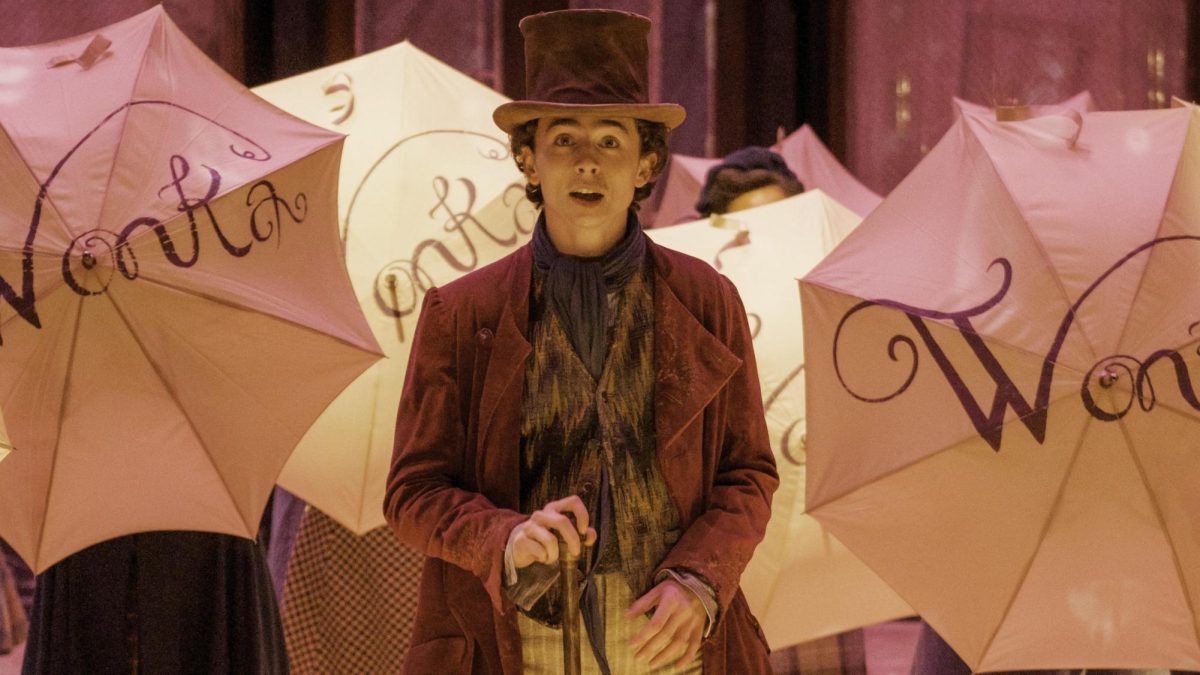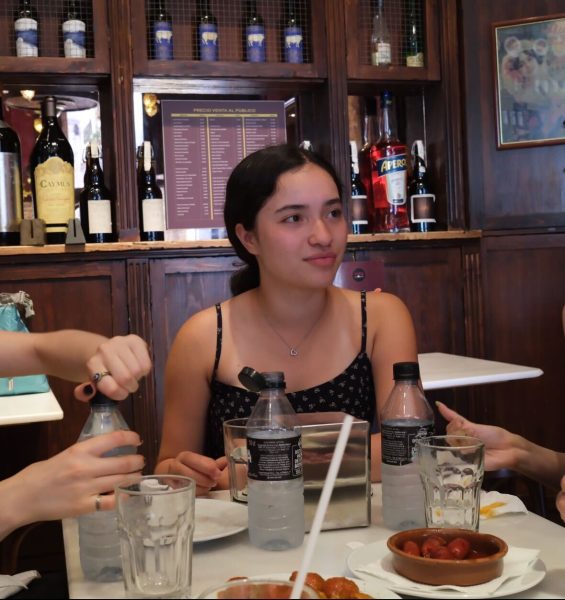A hushed silence fell over theater as the iconic first notes of “Pure Imagination” began to play. Boxed in by row upon row of awestruck children and their exhausted parents, I took out my notepad and jotted something vaguely appreciative down. Then, Timothée Chalamet opened his mouth, and I became acutely aware of the fact that this movie was a musical. Needless to say, my notes took a turn.
“Wonka” follows its titular character as he turns from a penniless but imaginative orphan into the most famous chocolatier in the world. Our lovably stupid lead is duped, conned, and hoodwinked several times before he manages to befriend a much more intelligent (and frankly, more interesting) orphan named Noodle. With her help (as well as that of an accountant, communications specialist, plumber, and comedian), Wonka begins to sell his innovative sweets and take down the triumvirate of evil businessmen known as the “Chocolate Cartel.”
The movie is definitely geared towards a younger audience, so much so that there are often comically large gaps in logic. For starters, we have absolutely no clue where it actually takes place, other than the fact that it’s somewhere in Europe. Every single person has a different accent, mostly British or American, despite the fact that all of the signs are in German. To that end, the set looks relatively German up until the part where they flash a very British land-
mark, that being Oxford’s Radcliffe Camera. The mixing and matching leads one to believe that it’s a fantasy world made up for the purposes of the movie, until Wonka casually mentions Belarus and we’re reminded that it somehow takes place in the real world.
The character of Wonka himself further proves this point. The writers are so painfully aware of the fact that this is a children’s movie that they’ve made the character of Wonka too cheery and guileless to properly pull off any of his more emotional moments. Chalamet struggles to bring depth to scenes where Wonka grapples with the death of his mother, having been given nearly nothing to work with in terms of dialogue other than brief and one-dimensional sadness.
This is a running theme for the movie: It continually seems as though it’ll touch on something deeper, then pulls away at the last moment in favor of increasingly outlandish gimmicks (yes, I’m thinking about the giraffe-milking scene). There are so many undercurrents to the movie that are poked at but never truly explored, like the effects of corporate monopolies, the inherent ruthlessness of capitalism, and the exploitation of migrant workers. To be clear, I’m not saying that a lighthearted prequel geared toward children should have been a gritty exposé on the dangers of bribery and extortion in society. However, it seems a little odd to repeatedly dangle those themes in the background without ever really addressing them.
To give “Wonka” due credit, the visual choices are stellar from the first scene to the last. With delightful set design and costumes, “Wonka” sets itself apart from every other “Charlie and the Chocolate Factory” variant in terms of sheer aesthetic appeal, featuring a seemingly endless array of display fonts, pastels, and vaguely Central European architecture.
We see soon enough that the chocolates themselves are really the stars of the show. Each of Wonka’s inventions are accompanied by delightfully creative visual effects, from uncontrollable floating to expedited hangovers. The ingenuity of the chocolates themselves adds a necessary depth to Wonka’s character, something that Chalamet’s poorly feigned naiveté and a whole slew of lackluster musical numbers couldn’t do: It shows us how and why Willy Wonka came to be the most famous chocolatier in the entire world — and after all, isn’t that exactly what a prequel is supposed to do?


